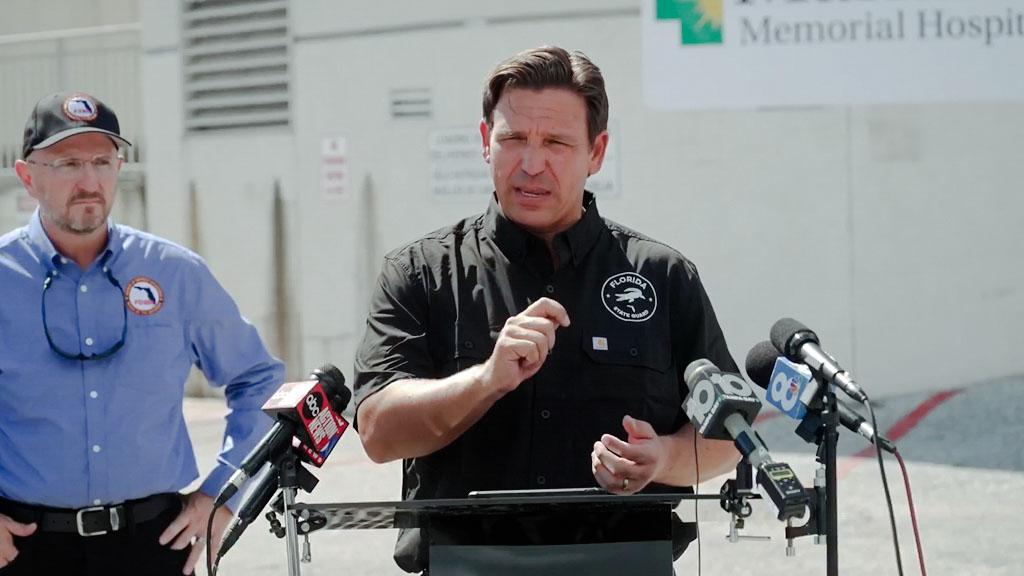In the aftermath of Hurricane Milton, Florida Gov. Ron DeSantis on Thursday pushed back on claims that the climate is causing stronger hurricanes.
When asked during a news conference about whether it’s unusual for tornadoes to occur during hurricanes, DeSantis noted, “You can go back and find tornadoes through all of human history,” before citing how intense hurricanes hit Florida in the early part of the 20th century.





